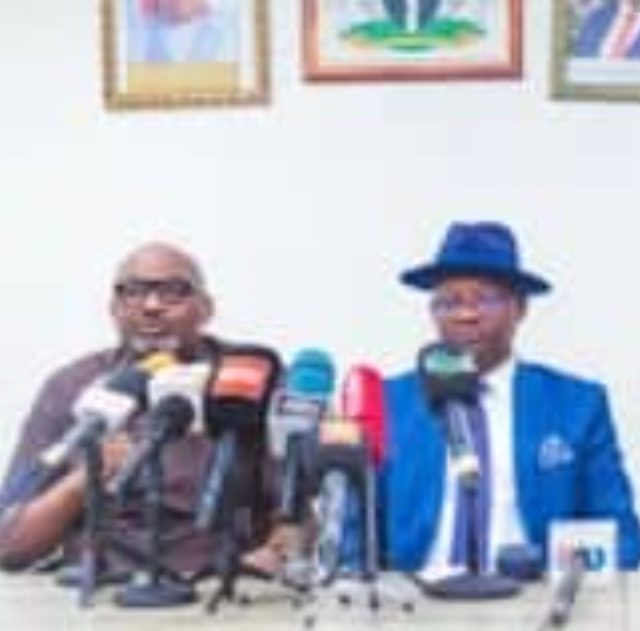.
The Secretary to the Delta State Government (SSG), Dr. Kingsley Emu, has said the conscious expansion strategies of the Oborevwori administration has earned the state a place as one of Nigeria’s fastest-growing economies.
Dr. Emu stated this while briefing Journalists in Asaba alongside the Commissioners for Works (Rural Roads) and Public Information, Agriculture, Trade and Investment, and the Economic Adviser to the Governor.
He said government was prioritizing road infrastructure to open up new business corridors and ensure Delta remained a destination of choice.
“Delta State is now a migrant destination for business. Our investment in road networks is unlocking access to underserved areas, and our next priority is ensuring a robust power mix to energize growth, the SSG stated.
Dr. Emu further revealed that the state government had rolled out measures to improve the welfare of its citizens, including the approval of ₦10 billion to clear outstanding pension commitments, disbursement of ₦1.8 billion to support 10,000 widows across the state, and plans for a mega empowerment programme in the last quarter of 2025 to boost household incomes and small businesses.
The SSG also disclosed that large arable lands in the state’s forest reserves, hitherto encroached upon by criminal elements, would be released for commercial farming, and by extension provide land for investors, as well as deny kidnappers and maraude the cover they always exploited.
Also speaking, the Economic Adviser to the Governor, Dr. Barry Gbe, said the Abuja meeting was particularly strategic as it would involve the World Bank and the Federal Government’s Rural Electrification Agency (REA), with funds set aside to power 25 communities per state.
“About 400 companies have already indicated interest in this stakeholders’ roundtable. For Delta, this is a major opportunity to deepen power access and strengthen the investment climate”, he explained.
The Commissioner for Agriculture and Natural Resources, Barrister Val Areyenka, highlighted the state’s comparative advantage in cassava and rice production.
He noted that inadequate power had hindered cassava processing, but with new energy projects and prospective partnerships from Brazil—one of the world’s experienced and largest agricultural investors—these challenges would be tackled.
“Our rice mill in Aboh Ogwashi-Uku produces 50 tons of rice daily, and we intend to attract partners from Brazil to expand this capacity. With the signing of the anti-open grazing law, Delta is set to embrace ranching, ending farmers-herders clashes, while boosting agribusiness”, he added.
For his part, the Commissioner for Trade and Investment, Mr. Samuel Oligida, stressed that peace and security were prerequisites for business growth, and Delta had made significant strides in those regards.
He pointed to ongoing market development projects, including the construction of the state’s largest market at the Udu Harbour Market in Udu local government area, as evidence of the government’s commitment to providing business-friendly infrastructure.
Oligida further disclosed that discussions in Brazil would also focus on solid minerals, as Delta had abundant deposits, including coal.
With its proactive steps in infrastructure, agriculture, trade, power and social welfare, Delta State is positioning itself as an investment hub and a model of inclusive and integrated economic growth.
Delta State’s economy has grown by 51% over the past six years, driven by the non-oil sector.
The state’s GDP is projected to reach ₦6.77 trillion by 2027, with a focus on sustainable and Inclusive economic growth.









Why Delta North Needs a Ranking Senator With Experience, Legislative Expertise...